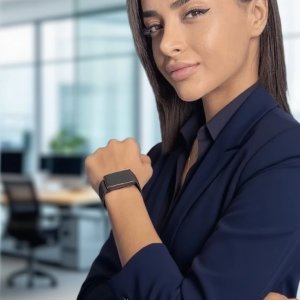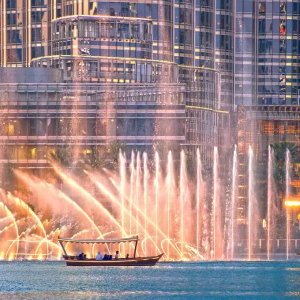The Rise of Artificial Intelligence in Music Creation
Music has always been a reflection of human emotion, creativity, and culture. From the soulful compositions of classical maestros to the catchy pop hits of today, the process of creating music has traditionally relied on human intuition and experience. However, a quiet revolution is underway in the music industry—artificial intelligence (AI) is now stepping into the spotlight as a creative partner. The question many music lovers are asking is simple yet profound: could your next favorite hit be composed by a machine?
AI in music is no longer a distant concept. Advanced algorithms can analyze vast libraries of music, identify patterns, and generate entirely new compositions. Tools powered by AI can now produce melodies, harmonies, and even lyrics that rival the work of human musicians. This technological shift is redefining what it means to be a composer, offering new opportunities for creativity while challenging traditional notions of artistry.
How AI Composes Music
The process of AI music composition is fascinating. Unlike human creators who draw inspiration from personal experiences and emotions, AI relies on data. It studies countless songs across genres, analyzing rhythm, structure, chord progressions, and lyrical themes. By identifying trends and recurring patterns, AI can generate new music that feels familiar yet fresh.

Some AI systems can produce fully arranged songs with vocal tracks, instrumental layers, and even emotional cues to match different moods. Others assist human artists by suggesting melodies, harmonies, or beats, acting as co-creators rather than replacements. This collaboration between AI and human musicians has already led to innovative tracks that push the boundaries of conventional music.
AI and Personalized Listening Experiences
One of the most exciting possibilities of AI in music lies in personalization. Imagine a song that adapts to your current mood, weather, or even heart rate. AI-driven platforms are increasingly capable of crafting music that resonates with individual listeners on a deeply personal level.


These advancements could redefine how people discover and consume music. Instead of browsing playlists or radio stations, listeners could receive a unique track tailored entirely to their preferences, making the experience more immersive and meaningful. AI might not only create hits but also change the way people form emotional connections with music.
The Debate: Creativity or Computation?
Despite its potential, the rise of AI-generated music has sparked debate. Critics argue that music created by algorithms lacks the soul and emotional depth that human musicians bring to their art. A song can follow perfect mathematical patterns, but can it truly convey the heartbreak of a lost love or the exhilaration of a new beginning?
Supporters, however, believe AI is expanding creative possibilities rather than limiting them. By handling repetitive tasks, generating ideas, or exploring new musical structures, AI allows human musicians to focus on expression, experimentation, and innovation. In this sense, AI does not replace human creativity but enhances it, offering tools that can inspire artists to reach new heights.
Real-World Examples of AI Music Hits
The music industry is already seeing the results of AI collaboration. Some chart-topping hits have incorporated AI-generated elements, blending human performance with machine-assisted composition. From experimental electronic music to mainstream pop, AI tools are shaping sounds that captivate audiences worldwide.
Artists are also experimenting with AI to generate music videos, lyrics, and album concepts. This synergy between technology and artistry is creating a new era where music is not confined by traditional methods but is defined by endless possibilities.
Ethical Considerations and Ownership
As AI becomes more involved in music production, questions about ownership and ethics arise. Who owns a song created by an AI? The programmer? The musician who guided the AI? Or the AI itself? These discussions are shaping new legal frameworks for intellectual property in the digital age.

Additionally, there is concern about the potential homogenization of music. If AI relies on existing patterns to generate new tracks, could music become predictable or formulaic? Balancing innovation with originality will be key to ensuring that AI enhances the music landscape rather than diminishes it.
The Future Soundscape
Looking ahead, the integration of AI in music promises to transform the industry profoundly. AI could democratize music creation, enabling aspiring artists with limited resources to produce professional-quality tracks. Virtual concerts and interactive music experiences powered by AI may redefine live performances, offering audiences immersive experiences tailored to their preferences.
Furthermore, AI could help preserve musical heritage by recreating lost styles or composing in the spirit of legendary artists. The possibilities are vast, limited only by imagination and ethical considerations.
Will AI Become the New Superstar?
While AI may never replace the emotional essence of human creativity, it is poised to become a powerful collaborator in music production. Your next favorite song might feature melodies, beats, or harmonies created with AI assistance—even if you never know it.
Ultimately, the future of music is not about AI versus humans but about how both can coexist to create richer, more diverse, and emotionally resonant soundscapes. The next chart-topper might emerge from an unexpected collaboration between a human artist and an intelligent machine, proving that innovation thrives where creativity and technology intersect.

Conclusion: Embracing the AI Music Revolution
The rise of AI in music is not a threat but an opportunity. It challenges artists, listeners, and the industry to rethink what constitutes creativity, originality, and connection. As AI continues to evolve, it will shape the way we compose, experience, and enjoy music in ways we can only begin to imagine.
Whether your next favorite hit comes from a human, an AI, or a collaboration of both, one thing is certain: the future of music is bright, innovative, and filled with endless possibilities.
Do follow UAE Stories on Instagram
Read Next – Arada Masaar 3 Sharjah: First Two Phases Sell Out in Hours













